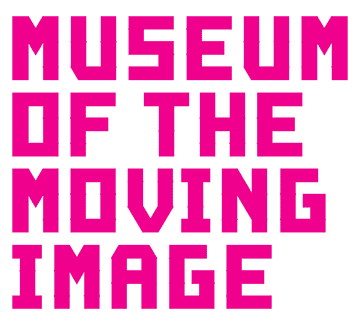EVENT, SCREENING
Public Show of Orphan Film Symposium highlights
Ongoing
Presented by NYU Tisch School of the Arts, Department of Cinema Studies, Moving Image and Archiving Program.
A special opportunity for the public to see some of the rarest, most exciting finds from this year’s Oprhan Film Symposium.
The Orphan Film Symposium, founded in 1999 by Dan Streible, is a unique scholarly event. Its
combination of presentations and screenings has an intense, loyal following among archivists,
historians, students, and filmmakers. “Orphan film” refers to all manner of films outside of the
mainstream: public-domain materials, home movies, industrial and educational movies, independent documentaries, ethnographic films, newsreels, underground works, and more.
On Sunday, April 15, from 2:00 p.m. to 7:00 p.m., there will be a public screening of highlights from the symposium. The April 15 screenings, in the Museum’s main theater, will be open to the public and free with Museum admission. See full schedule below.
Orphans Public Film Program Schedule
2:00 p.m.
The Army Pictorial Center in Astoria
Presentation by Barbara Miller, the Museum’s Collection Curator, about the Army Pictorial Center in Astoria and screening of The Use of Training Films, which is indeed a training film about training films.
Campaign Films and TV Spots
The history of presidential campaign commercials, in a presentation by David Schwartz, the Museum’s Chief Curator with screening of ads from The Living Room Candidate
Also, a revelatory look at three campaign films made in 1948, “The Dewey Story,” “The Truman Story,” and “A People’s Convention.” Charles Musser (Yale) presents convincing evidence that Truman’s superior biographical film, seen in movie theaters by 90 million people, may have decided the outcome of Truman’s famous upset victory. “A People’s Convention,” made for the third-party campaign of Henry Wallace, is a remarkable record of the American progressive movement.
Charles Wilp’s Afri-Cola Films
Dazzling 35mm prints of the “sexy-mini-super-flower-pop-op-Afri-Cola” commercial campaign by experimental filmmaker Charles Wilp, preserved by Annette Groschke, Deutsche Kinematek.
Making Films at AT&T/Bell Labs
Walter Forsberg (NYU) presents the pioneering experimental and computer-animated films sponsored by AT&T and Bell Labs between 1967 and 1980. The films include Operator (by Nell Cox), Touch Tone Phone Film (by Bill Brand), Dot Squared (by Katy Martin), and a remarkable series of abstract computer-animated films by Lillian Schwartz: Pixillation, UFOs, Olympiad, Enigma, Papillon, Galaxies)
5:00 p.m.
From the Czech Army Film Studio
Metrum An astonishing short black-and-white film study of life in the Prague subways; one of the great cinematic finds of this year’s Orphans.
Community Youth Filmmaking
The Jungle (a 1967 film made in Philadelphia by the 12th and Oxford Street Filmmakers)
The L.A. Rebellion
Daydream Therapy (Bernard Nicholas’s short 1977 film, part of the ambitious film series The L.A. Rebellion, a survey of black independent films made in Los Angeles in the 1970s and 1980s.
National Memory Reconsidered
Cine Movil (A short documentary about a traveling film van in Mexico).
Popular Science
The Flight to Thousands of Suns (An astonishing film by Russian director Aleksei Yerin, 1963)
Behavior Modification
How to Light a Cigar (Silent film made in 1945 by Sam Fuller)
AFA Pledge Drive (Hilarious find by Andrew Lamper, Anthology Film Archives)
Light Cavalry Girl (Delighftul 1980 film from the Central Newsreel and Doucmentary Film Studio)
About the Orphan Film Symposium
This year’s theme is “Made to Persuade.” What neglected productions have influenced thought, opinion, and perception (or tried to)? Among the forms under consideration are political campaign ads, advertising films, television commercials, newsreels, religious pictures, sponsored and sales films, military productions, trailers, documentaries, essay films, public affairs and public access programs, activist and advocacy pieces, intelligence work, censored footage, indoctrination and training films, triggers, guidance and educational films, amateur samizdat, and more.
See rediscovered work from archives in the Netherlands, Ghana, Mexico, Germany, China, Switzerland, Ireland, the Czech Republic, and Russia. Filmmakers in attendance will include Lillian Schwartz, Nell Cox, Bill Brand, Issa Garcia Ascot, Irene Lusztig, and the symposium’s Helen Hill awardees, Jeanne Liotta and Jo Dery. There will also be lesser-known work by historical figures such as Sam Fuller, Frank Tashlin, Roman Vishniac, Hans Richter, and Dave Fleischer, and
by accomplished filmmakers such as Jie Shen, Valy Arnheim, Bill Birch, Sy Wexler, Robbins
Barstow, Rolf Forsberg, and Lee Dick.
More than 80 participants will present rare, rediscovered, or recently preserved works. New
productions and technical presentations on moving image archiving and preservation are
also part of the program.
Related
